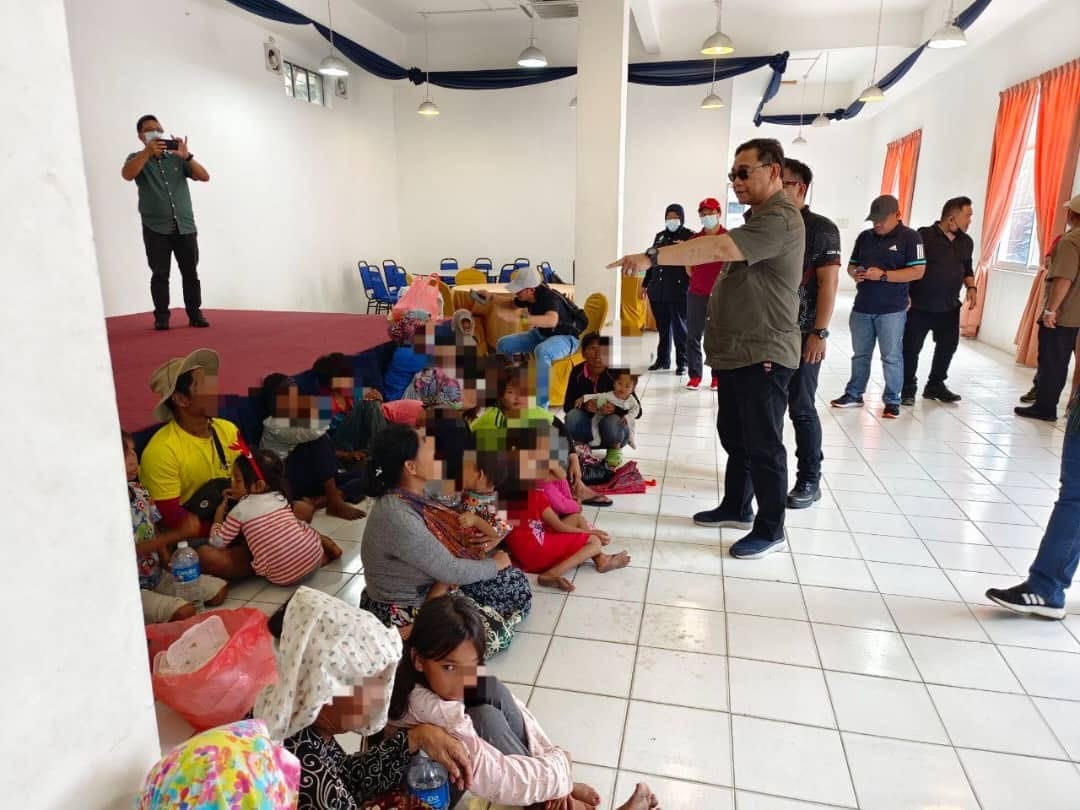
James (right) overseeing the rescue operation of street people.
KOTA KINABALU (Feb 9): Thirty-one members of the Palauh community and beggars were rescued from the city streets here and sent to a temporary shelter during a joint operation on Wednesday.
Led by State Community Development and People’s Welfare Minister Datuk James Ratib, the operation was carried out jointly with City Hall, Royal Malaysian Police, Welfare Department, National Security Council and other agencies.
James said of the 31 rescued, ten were women, three men and 18 children. All of them were sent to the temporary shelter.
“This effort will not stop here. We will continue to push forward until Kota Kinabalu is free from Palauhs and beggars.
“We will also expand such operation to other districts such as Lahad Datu, Tawau and Sandakan,” he said in a statement.
He said these street people would be taught life skills at the shelter before the authorities decide on which agency will accept them and where they will be placed at.
James, who is also Sugut assemblyman, said the shelter is enough to accommodate the street people rescued from this operation. More space will be added for future operations.
Chief Minister Datuk Seri Hajiji Noor had announced during the State Assembly sitting in November last year a temporary shelter for homeless children mostly from the Pa’lau community, would be set up.
He said the pilot project would start in the state capital, with an unoccupied government quarters renovated into a temporary shelter for these children for a maximum of three months.
These children will be provided basic living skill training, community and civic skills, and other basic knowledge before they are released back to their parents or guardians, he said.
He said the programme will target Pa’lau children, and their parents or guardians, who are taken in during operations.
Before leaving and being released, their parents or children would be given a warning to make sure their children do not end up begging in the streets again.
Hajiji said that the initiative was in line with the Geneva Convention on the rights of a child, which puts emphasis on child protection and prevention of risks including exploitation.
The Child Act 2001 also prevents children from being involved in begging activities that endanger their health and wellbeing.
Hajiji said that presence of the undocumented migrants or “street urchins” around the city, usually begging near traffic lights, gives a negative image and the wrong perception of the state.
The Pa’lau community is a seafaring community who are usually found around coastal areas.
